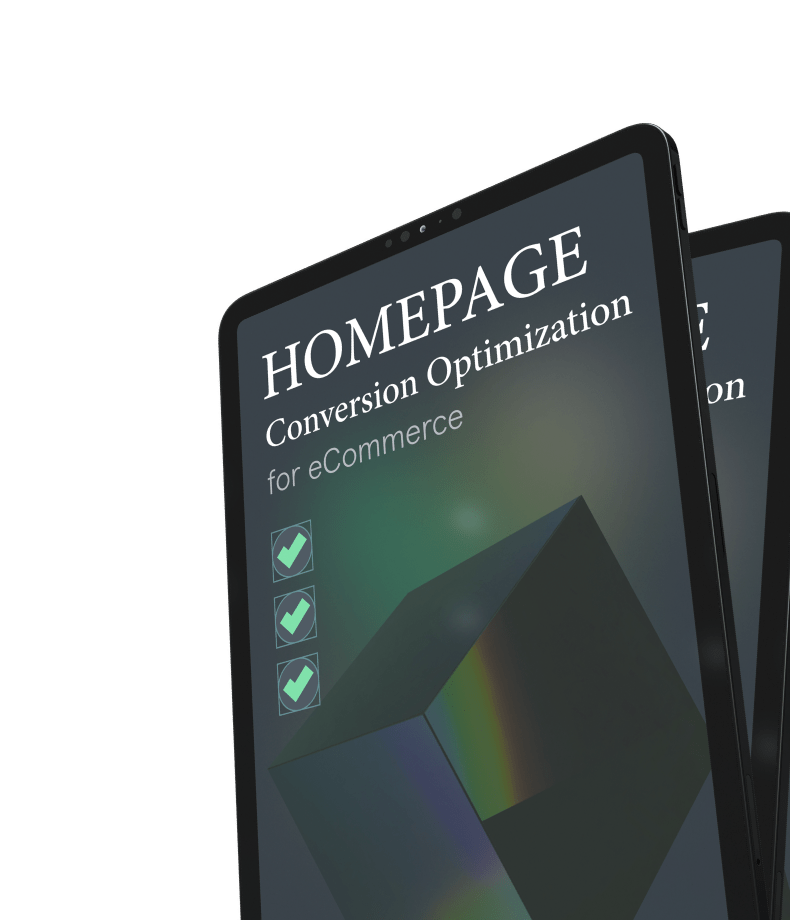Magento, Shopify, BigCommerce, WooCommerce, Squarespace, and dozens more… Each solution offers a range of features, integrations, and pricing options, making it challenging to determine which one is the best match for your business. How not to get lost in the abundance of popular eCommerce platforms in the eCommerce space?
To help you make an informed decision, we’ve created a comprehensive overview guide of some of the best eCommerce platforms available. From user-friendliness to design customization, we’ll provide you with everything you need to know to choose the best eCommerce platform for your business.
So, let’s dive into our eCommerce platform comparison cheat sheet.
#1 Magento (Adobe Commerce)
Formerly known as Magento, Adobe Commerce is an independent solution that ranks among the best eCommerce platforms on the market. It’s specifically designed for larger organizations, with advanced marketing features, customer loyalty programs, and an intuitive Page Builder.
However, setting up this enterprise eCommerce platform can be challenging, and you’ll need experienced developers to configure web hosting, security certificates, your domain name, and other elements. Nonetheless, Adobe Commerce offers a marketplace of extensions for everything from customer service to payment processing and order management, allowing you to add extra functions through both free and paid extensions.
One of the benefits of Adobe Commerce is its unlimited personalization capabilities and advanced analysis features. It also integrates with other products on the Adobe suite, making it a powerful tool for large businesses with skilled developers to handle the technical side of the platform.
While it may not be suitable for small businesses and requires technical knowledge, Adobe Commerce provides robust customer support options, including a customer success manager, Magento Help Center, and customer support forums.
Pros
- Unlimited personalization capabilities
- Advanced features for analysis
- Seamless integrations with other Adobe products
Cons
- Not the best option for small businesses
- Requires technical knowledge
Pricing
Adobe Commerce offers a custom price depending on your selling volume, so it’s best to contact Adobe directly to get a quote for your business. Overall, Adobe Commerce is an excellent choice for mid-to-large-sized businesses seeking a powerful eCommerce solution with extensive personalization capabilities and advanced features to underpin marketing efforts.
Magento
Development Get an online store that sells. Woo customers with a seamless UX that guides them from the first point of contact to the checkout page.

#2 Shopify
Shopify is a well-known eCommerce platform that is likely familiar to anyone interested in eCommerce. With millions of businesses across 175 countries, it is one of the best eCommerce platforms available. The platform provides everything you need to launch your online store, including web hosting, content management system (CMS), database configuration, and SSL certificates.
Shopify offers selling digital products, which allows merchants to sell and deliver digital products such as ebooks, music, videos, and software.
Additionally, Shopify offers a variety of mobile-optimized eCommerce out-of-the-box customizable templates to match your brand’s unique style. Basic marketing tools are also available, with more robust options offered through the Shopify Marketplace. Shopify offers a variety of customer support options, including phone support, email support, live chat, the Shopify Help Center, social media, and community forums.
Although Shopify may not be the most budget-friendly option, it provides a comprehensive eCommerce package and is a great choice for those who value simplicity and ease of use, even without technical expertise.
Pros
- Multiple integrations with third-party applications like QuickBooks
- User-friendly interface
- Accepting recurring payments for subscriptions
- Mobile app available for both iOS and Android
Cons
- Higher tier plans can be expensive
- Limited number of free customizable themes
Pricing
Shopify offers three major plans:
- Basic: $39/month
- Shopify: $105/month
- Advanced: $399/month
They also have alternative eCommerce solutions:
- Starter ($1 per month) for vendors who want to sell products through social media messaging apps
- Shopify Plus ($2,000/month) for high-volume sellers
- Commerce Components (modular pricing) for large-scale online business owners
Keep in mind that transaction fees may also apply depending on your payment gateway.
#3 WooCommerce
WooCommerce is a popular eCommerce platform that’s a good choice for those with an existing WordPress site. It’s a WordPress plugin that enables you to turn your WordPress website into an online store.
Unlike Shopify, which offers a quick and easy setup, setting up WooCommerce requires some technical knowledge. To begin, you’ll need to know how to set up WordPress, obtain a domain, SSL certificates, and web hosting.
The upside of learning all this is that WooCommerce is incredibly customizable. You’ll have access to a wide range of add-ons, such as email and SMS marketing plugins, WooCommerce themes, payment solutions, and more, to personalize your online store. Some of these add-ons are available for free. The downside of this is that beginners may find it more challenging to optimize their website than they would with a more straightforward eCommerce platform like Shopify or Wix.
WooCommerce enables you to sell a wide range of products and services, including physical and digital products, tickets, courses, memberships, and subscriptions. The eCommerce platform offers a variety of customer support options, including live chat support, a self-service guide, an FAQ page, and support tickets.
WooCommerce is built on WordPress, so it’s an excellent option for vendors who want to utilize blogging and content marketing for SEO.
Pros
- It’s free to use if you have a WordPress website
- Numerous payment gateways are available
- A variety of add-ons are available
- Great customization options
Cons
- You’ll need a domain, web hosting, and SSL certificate
- Prior knowledge of using WordPress is required
Pricing
Free eCommerce platform
Lean about the state of headless in eCommerce

#4 BigCommerce
BigCommerce is a robust website builder and eCommerce platform suitable for scaling businesses. While it is a little more complex compared to Shopify, its key features make up for the complexity, making it an ideal choice for growing businesses and established enterprises.
BigCommerce offers more than 100 themes, some of which are free, which can be easily customized to control backgrounds, font colors, logos, checkout, and more. You can also complement the eCommerce platform with third-party extensions for an even wider range of functions, including email and SMS marketing.
BigCommerce provides phone support, live chat, support tickets, Help Center, and support forums. All the above-mentioned capabilities make BigCommerce one of the best eCommerce platforms.
Pros
- Accepting payments in multiple currencies
- All plans come with a good reporting tool included
- Includes an easy-to-use drag-and-drop page builder
Cons
- Abandoned cart functionality is not available on its basic plan
- Each plan has a limit on annual online sales, exceeding which would require upgrading
- Free themes are too similar to each other
Pricing
The eCommerce platform offers four major plans:
- Standard: $29/month
- Plus: $79/month
- Pro: $299/month
- Enterprise: custom pricing
Also, a free 15-day trial is available.
#5 Squarespace
Squarespace is a versatile eCommerce platform that allows you to create various types of websites including online stores.
One of its main advantages is its wide range of beautiful customizable templates and themes, many of which are free. Squarespace’s themes not only focus on selling but also on aesthetics.
The eCommerce software includes a free custom domain (for one year), SSL for all plans, hosting, storage, and more. Its drag-and-drop builder makes it easy to use and set up. Squarespace has great uptime reliability compared to other website builders, ensuring that your online store is always available for visitors to access.
However, Squarespace’s marketing offerings are not as extensive as other options like Shopify and BigCommerce. You can extend the capabilities of this eCommerce platform by utilizing their Extensions marketplace.
Email support, help center, webinars, and forums are among available customer support options offered by Squarespace.
Pros
- Affordable plans even for small business owners
- No technical experience required
- Free quality eCommerce templates
Cons
- Abandoned cart recovery is not a standard feature
- No free plan available
Pricing
- Personal: $16/month
- Business: $23/month
- Commerce Basic: $27/month
- Commerce Advanced: $49/month
Development Get a robust PWA
Supercharge your eCommerce efforts with superb UX and ‘superfast’ speed. Build an eCommerce PWA from scratch or save time and money using GoPWA Storefront.

#6 Wix
Wix is a comprehensive eCommerce website builder with separate plans for websites, eCommerce stores, and enterprise-level solutions. In addition to an intuitive and beginner-friendly editor with drag-and-drop functionality, Wix offers infrastructure, SSL certificates, and a free domain for one year with all paid subscriptions.
This eCommerce platform offers lots of high-quality store templates for users, making it easy to build a professional-looking online store. Its plans have robust features including abandoned cart recovery, recurring payments, and the ability to sell unlimited products across multiple channels.
However, unlike other options, Wix is more of a website builder with some eCommerce features than a dedicated eCommerce solution. As such, you may miss out on some of the features that come with other Wix alternatives. Fortunately, the Wix App Market gives online store owners access to a wide range of additional Wix apps.
Another item that sets this website builder apart from other eCommerce platforms is its gorgeous web design templates. The tool provides over 85 customizable eCommerce templates for free. While you can still build a Wix website from scratch, you would be missing out on one of the best collections of email templates and other Wix email marketing solutions.
This eCommerce software solution has an email marketing and customer management solution, Wix Ascend, to help with your marketing campaigns. The tool, however, has a different pricing guide from Wix plans. The platform provides phone support, live chat, Wix Help Center, and priority support for VIP users.
Pros
- An all-inclusive hosting solution with a domain and SSL certificates
- Over 85 free templates
- Selling unlimited products
- Beginner-friendly
Cons
- Limited storage of only 50 GB on the basic plan
- Limited dropshipping integrations
Pricing
eCommerce website plans:
- Connect Domain: $4.50/month
- Combo: $8.50/month
- Unlimited: $12.50/month
- VIP: $24.50/month
Business and eCommerce plans:
- Business Basic: $17/month
- Business Unlimited: $25/month
- Business VIP: $35/month
Enterprise plans: Custom pricing
#7 PrestaShop
PrestaShop is a great open-source eCommerce platform suitable for businesses of all sizes, offering professional themes, order management, advanced inventory management, social media marketing, support for multiple languages and currencies, and other critical features.
Unlike other platforms, this website builder does not provide hosting, domain names, or other basic tools, which means you need to install it on an existing server. However, once you get past the initial setup, it’s easy to get used to PrestaShop’s eCommerce functionality.
PrestaShop offers a wide range of customizable themes for virtually any industry, although most of them are costly, ranging from around $100 to $200, so it’s important to be confident in a template before committing to it. After setting up a theme, nearly every aspect of the design can be quickly customized, including checkout and product pages.
With PrestaShop, vendors can accept a variety of payment methods, maximizing their potential audience and making payment as convenient as possible for each unique buyer. Additionally, the platform has marketing add-ons like PrestaShop Facebook for social media integration and PrestaShop Marketing.
Help Center and customer support forums are offered by PrestaShop.
Pros
- A free tool to download and use, even without extensions
- An open-source eCommerce platform that allows you to customize anything
- Unlimited listings
Cons
- Some coding knowledge required to customize your eCommerce site
- A time-consuming setup process
- Costly integrations
Pricing
Free eCommerce platform
Web Design Create a visually captivating and highly functional online store that drives conversions and sets you apart from the competition.

#8 Ecwid
Ecwid is an easy-to-use and great eCommerce platform that allows you to set up an online store on an existing site. It easily integrates with other websites, such as Wix, WordPress, and Weebly, and provides over 70 themes to choose from for your eCommerce section.
The Ecwid App Market offers even more integrations and extensions for extra functionality, including tools for web design, marketing, dropshipping, product catalogs, shipping, order management, accounting, reporting, and more.
One of the standout features of this eCommerce software solution is its free plan, which sets it apart from other eCommerce platforms like Shopify. However, the number of products you can sell on your eCommerce site is limited depending on your payment plan, with the free plan only allowing up to 5 products.
While the standalone site option only has one page, Ecwid is still a great choice for beginners who want to sell online at no cost and prefer to add it to an existing website.
Pros
- Offers a free plan
- Can be added to an existing website
- Beginner-friendly
Cons
- Standalone site option only has one page
- Cannot edit orders on the free or first paid plan
Pricing
- Free
- Venture: $14.08/month
- Business: $29.08/month
- Unlimited: $82.50/month
#9 Volusion
Volusion is an eCommerce platform designed to help businesses set up their online stores quickly without the need for technical knowledge. Their no-coding setup process makes it accessible to all vendors. However, if you want a more personalized eCommerce site, Volusion offers an in-house web design agency to help you.
Volusion’s checkout solution helps reduce cart abandonment, and they also provide product video options for better visuals on product pages. Their suggested products feature optimizes sales on your product page, which does not require third-party integration.
Unfortunately, Volusion does not support selling digital products like ebooks or music, limiting the types of businesses that can use this platform.
Volusion offers a Premium Theme Plus package that includes a premium theme, professional installation, Google Analytics installation/migration, and customization within the parameters of your selected theme.
Users can also integrate their online store with other eCommerce tools like Google Analytics to access Google’s powerful reporting capabilities. Volusion provides a variety of customer support options including a live chat, support via the phone, Volusion Help Center, and Certified Agency Partners.
Pros
- Multiple payment gateways available
- Great reporting and analytics
- Has a mobile app
Cons
- Plans are expensive compared to other eCommerce platforms
- No blogging feature
Pricing
- Personal: $35/month
- Professional: $79/month
- Business: $299/month
- Prime: custom pricing
#10 Weebly
Weebly, now part of the Square suite of tools, is an easy-to-use website builder that lets you get your eCommerce store up and running in no time. While it’s not exclusively for eCommerce, it’s still a great choice for merchants looking to sell online.
Getting started with Weebly is easy, and merchants get a free domain and Google Ads credits with every plan. The platform offers a free plan, allowing you to get your website up and running without any financial investment.
Weebly has a good variety of unique layouts for its page designs, which can be edited to customize them to your store’s needs. However, some design templates may be too simple for some businesses.
In terms of search engine optimization, Weebly provides basic capabilities to customize ALT texts, metadata, titles, tags, URLs, and more.
Weebly’s App Center offers a range of marketing apps, but it’s not as extensive as Shopify’s App Store and is more suited for beginners. Weebly offers phone support, chat and email support, and a community forum.
Pros
- Offers a free plan
- Suitable for small businesses
- Affordable pricing
- Offers a free domain and SSL certificate
Cons
- Some design templates are too simple
- Can’t connect a custom domain on the free plan
Pricing
- Free
- Personal ($10/month)
- Professional ($12/month)
- Performance ($26/month)

What to consider when choosing the best eCommerce platform
With the continuous growth of eCommerce, it’s crucial for online retailers to have the right technology to support their business strategy. Rather than hiring a web developer, choosing an already-developed eCommerce platform can save you time and money, enabling you to focus on growing your business. Consider the factors below when choosing an eCommerce platform so you can pick the cream of the crop.
Platform cost
When choosing an eCommerce platform, it’s important to consider the platform price. However, it’s not as simple as choosing the cheapest option. Different eCommerce platforms offer different features at varying prices. Some eCommerce platforms offer a low flat rate with no additional transaction fees, while others have a base rate and charge per transaction, and may require subscriptions for additional apps to optimize your website.
It’s essential to identify the features you need and determine which platform offers them at the lowest price, taking into account any additional features that are included in the base price and may not be offered by competitors.
Themes available
The theme defines the design of your online store and is an important factor in creating a unique online shopping experience for your customers. Most eCommerce platforms offer a variety of themes to choose from, with some being free with the subscription, while other platforms are premium and require an additional fee to use. Choosing a premium theme can set your website apart from competitors, while opting for free themes may result in a lack of originality.
Consider the selection of paid and free themes offered by eCommerce platforms and the amount of customization available. Different eCommerce platforms have varying degrees of customization, so it’s crucial to assess how much effort you want to put into customizing your page. If you’re familiar with website creation, putting in some additional work may be worthwhile in designing a website that truly reflects your brand.
By carefully selecting a theme and customizing it to your liking, you can create a visually appealing and unique online store that attracts and retains customers.
Features
Different eCommerce platforms offer varying features, with some platforms offering built-in marketing tools like newsletters, abandoned cart emails, reward programs, and daily deals in addition to basic eCommerce functionality.
It’s also important to choose an eCommerce platform that can integrate with third-party apps like Mailchimp or Shipstation, allowing you to substitute built-in features with apps that your team is familiar with. While built-in features may be excellent, using familiar apps can build consistency, which is essential for a growing business.
By choosing an eCommerce platform with the right features and integrations, you can create a powerful online store that meets your business needs and provides a positive shopping experience for your customers.
Integrations
When choosing the best eCommerce platform, merchants should consider the ease of integration with other business tools and eCommerce software. This is because apart from basic features like inventory management, they’ll need some advanced features to enhance their online store’s eCommerce functionality and streamline their business operations.
For example, they may want to integrate their eCommerce platform with:
- accounting software to automate financial reporting
- a CRM system to manage customer data more efficiently
- advanced SEO tools, such as customizable meta tags, XML sitemap generation, and schema markup, to optimize their online store’s content and structure for search engines
- abandoned cart recovery tools to send automated reminders and incentives to customers who have left items in their cart without completing the purchase.
An eCommerce platform that offers a seamless integration experience with third-party tools and services can save merchants time, effort, and money, and help them achieve their business goals more effectively.

Scalability
Most eCommerce store owners hope their business will grow in the future. It’s important to choose a platform that can scale along with your business and meet the needs of higher demands as your business takes off.
When starting out, you don’t want to pay for features and storage that you’re not using, so it’s essential to choose a platform that offers customizable pricing and plans. Additionally, the platform should be able to accommodate increased traffic and sales without charging exorbitant fees.
By choosing a scalable eCommerce platform, you can future-proof your business and ensure that it can continue to grow and thrive in the long term.
Payment options
While many of the larger shopping cart platforms offer a variety of payment options, others may only have a limited selection. Some eCommerce platforms may not offer digital wallet solutions like PayPal, Amazon Pay, Apple Pay, or Google Pay, which are some of the fastest and easiest ways for customers to pay for goods online. Requiring customers to find their credit card can result in losing a sale and miss out on the impulse purchases that are one of the benefits of online sales.
If you sell online internationally, you may also need to have payment options for international purchases. Some eCommerce platforms even accept assets like bitcoin. Therefore, it’s crucial to choose a platform that offers a variety of payment options that meet your customers’ needs and preferences.
It’s important to note that not all payment options are available through all payment gateways, so it’s essential to choose an eCommerce platform that integrates with the payment gateways that support the payment methods you want to offer.
By providing multiple payment options, you can offer a seamless and convenient online shopping experience for your customers, increasing the likelihood of repeat business and enhancing customer loyalty.
Security
Security is a top concern when it comes to eCommerce, as online businesses have a responsibility to protect their customers’ information. Therefore, it’s critical to choose an eCommerce platform that prioritizes security. The platform should have PCI compliance, SSL, fraud prevention, and data backups in place to safeguard against hacks and data theft.
By ensuring that your online store is protected from the very beginning, you can build trust with your customers and establish a positive reputation for your business.
Mobile friendliness
Almost 60% of searches are done from mobile devices, and many of these searches lead to purchases from mobile devices as well. Therefore, it’s extremely important to opt for a platform that prioritizes mobile responsiveness and provides a seamless shopping experience across all devices. By selecting a mobile-friendly eCommerce platform, you can reach a wider audience and maximize your sales potential, ensuring the success of your online business.
Technical support
Technical support is a critical factor, particularly for new merchants. Consider the availability of technical support, as some eCommerce platforms only offer support during business hours in their time zone, Monday through Friday, while others offer 24/7 support.
Additionally, check the type of support offered, as some companies only provide support online or via chat. The level of support you receive may also be linked to your service plan. Larger platforms typically have FAQs and tutorials for self-service help.
Having reliable technical support is essential to ensure that your customers can access your site and complete purchases, as technical issues can result in lost business.
Final thoughts
While each of the top 10 eCommerce platforms are industry leaders, they have different strengths and features that cater to different needs. Ultimately, the right platform should allow you to efficiently manage your products, create an attractive online store, track your performance, and ultimately succeed in online sales.
The answer to the question of which platform is the best depends on your unique business needs and preferences. So follow the tips we provided in the article to make the right decision for your eCommerce business.







